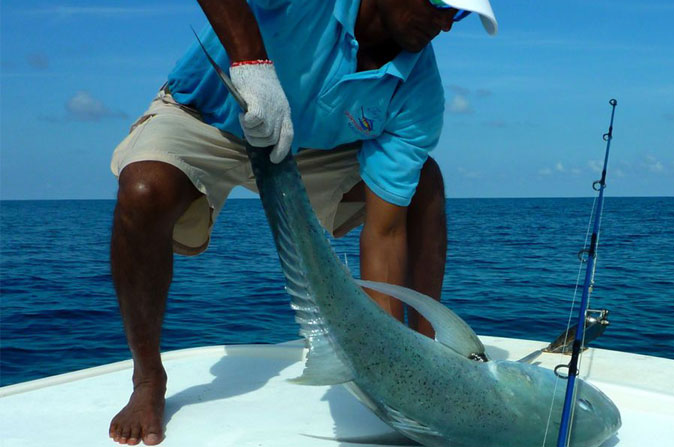Agriculture & Fisheries / Maldives
Sea of opportunity
Policymakers take steps to promote the artisanal and halal-certified fish produce of the Maldives to the gulf region and beyond.

Spanning 90,000 square kilometres of effortless azure, the sea which surrounds the coral reef islands of the Maldivian archipelago is home to more than one thousand species of fish. From north to south, the indigenous peoples of this young democracy, particularly those outside the capital Malé, rely on their centuries-old fishing heritage as a source of economic uplift. Beyond its commercial importance, fish produce is consumed at a higher rate per capita in the Maldives than anywhere else in the world, according to Dr. Mohamed Shainee, Minister of Fisheries and Agriculture of the Republic of Maldives.
Widely regarded as the most sustainable in the world, the ‘pole and line’ fishing methods of Maldivian artisans are in stark contrast to the foreign industrial fishing fleets which trawl the confluence of the Pacific and Indian oceans. “Maldivians will continue in their ways, undaunted by the less sustainable and sometimes illegal practices of competitors,” promises Dr. Shainee. The result, he explains, is a smaller, more sustainable industry which produces a premium product and also commands a premium price.
In the context of a highly competitive fisheries market, the national Fisheries Promotion Board (FPB) was established in 2013 to take on the role of promoting Maldivian produce globally. Visiting fisheries fairs around the world and making personal commitments to uphold production standards has helped secure fourteen additional markets, says Dr. Shainee. The success of the FPB has also improved the resilience and independence of the industry, which took a significant financial hit in 2014 following an EU decision to refuse the extension of duty-free status for Maldivian fish imports. Fortunately, under the auspices of the FPB, members of the Maldives Seafood Processors and Exporters Association, interested fishermen, and representatives of the Maldives Fisherman’s Association are being given greater exposure to international markets.
Buyers in the Gulf region are also being attracted to produce from the Maldives due to the range, quality and crucially, the Halal certification, acquired in 2014. Accessing Gulf markets, says Dr. Shainee, is about focusing on the high quality and ethically sourced fish which are the proud legacy of these isles.
